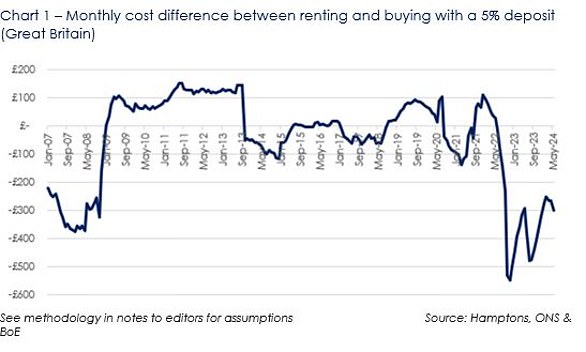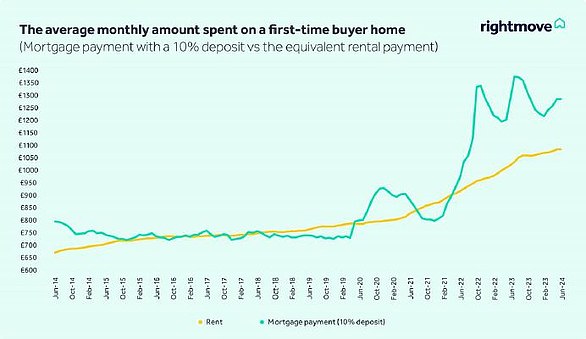Home prices remained flat in June as asking prices stagnate while the real estate market shakes off election uncertainty
Property asking prices have fallen from their record highs this month, but only by £21, according to Rightmove.
It means the average property on the market is now for sale for £375,110, although they typically sell for less, while the average property sales price is just under £289,000 according to the latest data from Halifax.
Compared to June last year, asking prices rose by 0.6 percent or £2,251, according to Rightmove.
Not much change: Average asking prices were little changed in June, while most buyers and sellers said they were not concerned about the impact of the upcoming general election
However, prices rose more sharply in some areas, particularly in cheaper regions in the north of England.
Five of the six cheapest areas hit new price records, including the North East where prices rose 1 per cent this month, the North West where they rose 0.9 per cent and the East Midlands where they rose 0.7 per cent.
Yorkshire and the Humber saw the highest year-on-year growth at 2.8 percent, although prices remained flat on a monthly basis.
In contrast, the more expensive regions of East England and London were the only regions where prices fell monthly, by 0.5 percent and 0.3 percent respectively.
What happened to your home price may also depend on its size.
‘Top of the ladder’ properties, consisting of five-bed and detached four-bed properties, saw a price fall of 0.6 per cent in the last month, and the smallest annual increase of 0.1 per cent, according to Rightmove.
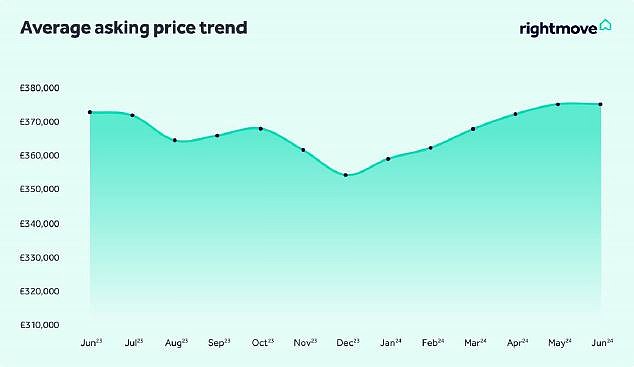
Marginal move: asking prices rose by just £21 compared to May’s figure
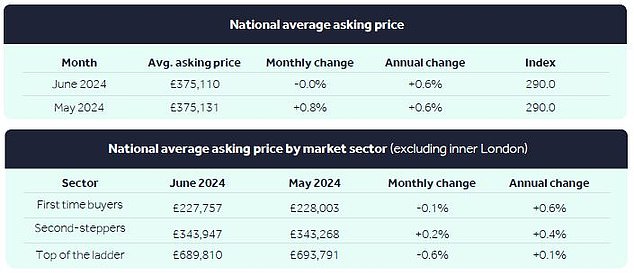
Budget-busting: Larger homes saw the biggest asking price drops this month, perhaps because the amount many buyers can spend on a home is limited by higher mortgage rates
The average home in this category now costs £689,810, with the monthly decline partly attributed to higher mortgage rates, which are restricting some buyers’ budgets.
Second step homes, consisting of three and four beds, now cost an average of £343,947, up 0.2 per cent in the last month and 0.4 per cent in the last year.
Homes for first-time buyers, which Rightmove classifies as two-beds and below, fell 0.1 per cent month-on-month to an average of £227,757, although prices rose the most over the year by 0.6 per cent.
Buyers remain calm and carry on during the election
The property portal said the upcoming general election had not had a significant effect on the property market, apart from perhaps a small drop in the number of higher-end homes for sale.
In the two weeks since the surprise election announcement, the number of top sellers entering the market was 3 percent lower than a year ago, compared to 11 percent higher in the previous two-week period, according to Rightmove.
However, buyer demand has remained stable and is now 5 percent higher than in June last year.
A Rightmove survey of more than 14,000 people shows that the vast majority (95 percent) of those planning to move say the election will not affect their plans.
Tim Bannister Rightmove’s director of property science said: ‘The vast majority of respondents say they will continue with their moving plans.
“However, some potential sellers appear to be watching and waiting rather than taking action, evidenced by a decline in the number of new sellers entering the market, especially at the high end.
‘This is understandable as many of these sellers have more flexibility about when they trade, but overall it seems to be business as usual for the mass market.’
Ian Baker, group CEO of Preston Baker estate agents in Leeds, added: ‘The government’s decision to call a general election has made no noticeable difference to market conditions.
‘Last week we saw a small dip in listings, but this can easily be explained as the traditional dip we would normally see during the half term week when more families choose to go away.’
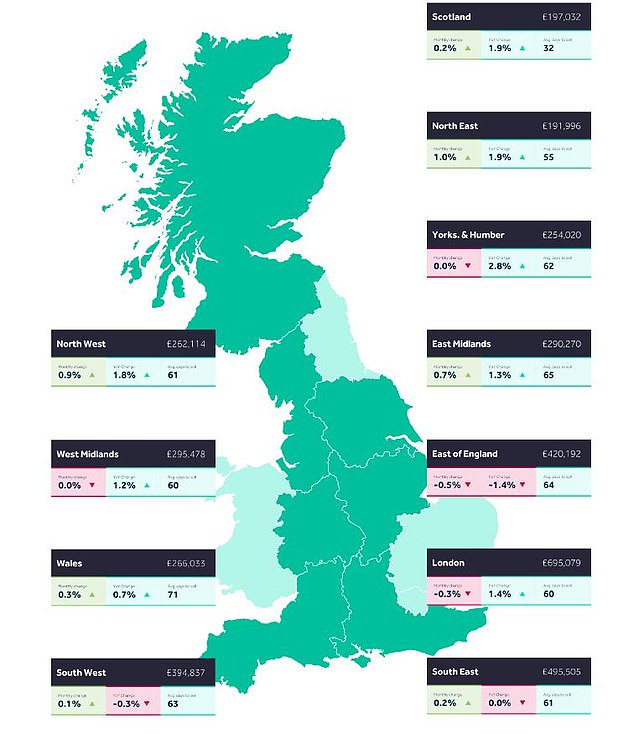
Not so grim: locations in Northern England saw a more significant asking price increase
Some links in this article may be affiliate links. If you click on it, we may earn a small commission. That helps us fund This Is Money and keep it free to use. We do not write articles to promote products. We do not allow a commercial relationship to compromise our editorial independence.

